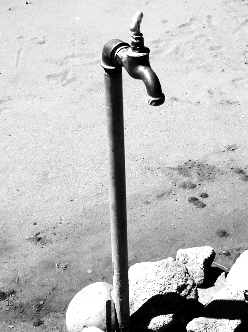Missing tests put towns at risk
 Many Kimberley Indigenous communities do not have microbial drinking water testing.
Many Kimberley Indigenous communities do not have microbial drinking water testing.
There are 44 remote communities in WA classed as ‘very small’ in the WA Government's Remote Essential and Municipal Services Program, known as REMS.
These communities only started receiving annual drinking water testing for chemical contaminants four years after a scathing Western Australian Auditor General's report ordered it.
But the vast majority do not receive testing for dangerous microbes including the potentially lethal E. coli bacteria.
A follow-up Auditor General's report this year found E. coli and uranium contamination are major issues in some communities.
Not only is it a daily risk for residents to be drinking untested water, the situation potentially puts Australia in breach of its obligations under a United Nations agreement to achieve “universal and equitable access to safe and affordable drinking water for all” by 2030.
University of Queensland environmental health researcher Nina Lansbury Hall is an expert on the health of residents in Indigenous communities.
“Microbial contamination is always something we need to worry about … a big part of that is faeces being the source of contamination,” Dr Lansbury Hall said.
“When you pick up E. coli in a test it is perhaps indicative of a bigger issue … you don't know what's in your water.
“But if there are amoebas, which are parasites, maybe that's going to cause long-term inflammation that will cause you diarrhoea and additional responses like a fever.”
Dr Lansbury Hall has suggested using mobile testing kits as a solution, but the WA Government says it requires water to be tested in an accredited laboratory.
WA’s Department of Communities says it does not have to undertake water quality testing in very small remote settlements, but it will try.
“The department will engage with the state government by June 2022 on future policy and service delivery options to ... introduce microbial water testing in the small self-managed remote settlements that do not, under current Remote Service Level Guidelines, receive the testing,” a department official has told reporters.








 Print
Print